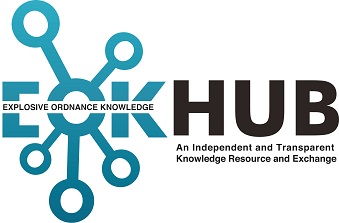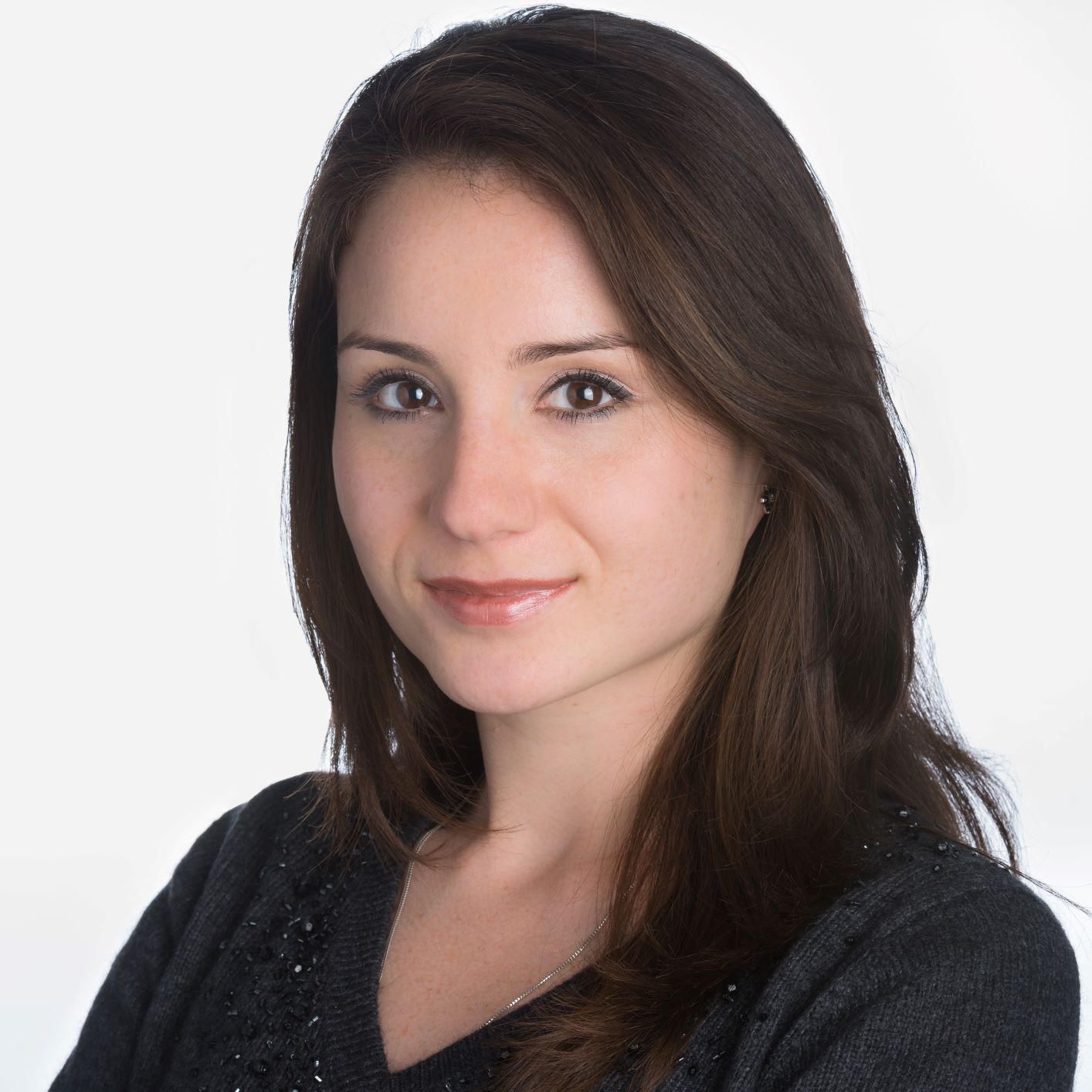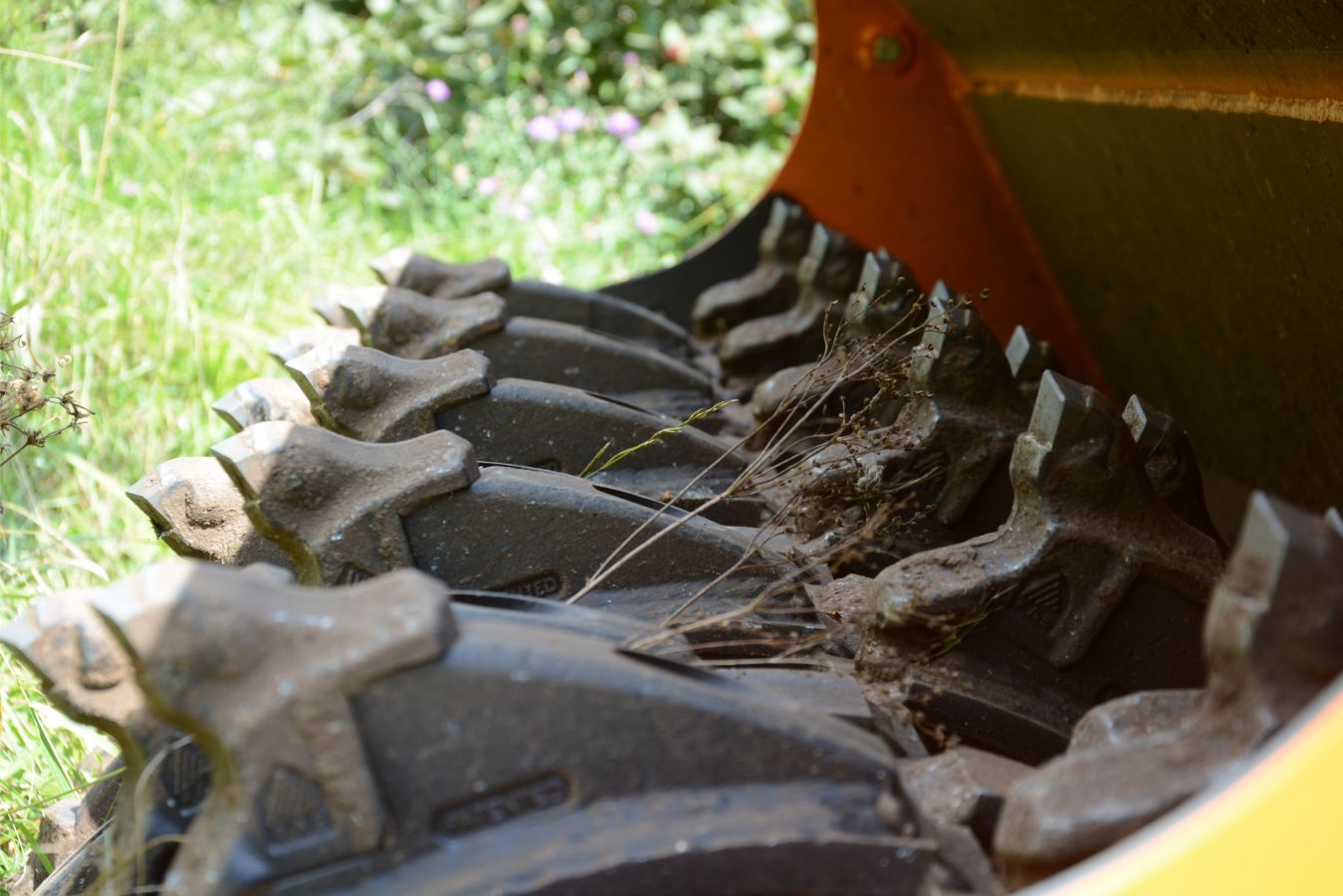INTERVIEW: Jovana Carapic, Programme Manager, AMAT
Jovana Carapic, thank you for joining us to tell us more about yourself and your experience. Most of the people in the explosive ordnance sector first got to know you as a researcher at the Geneva-based Small Arms Survey where your focus was on Unplanned Explosion at Munitions Sites (UEMS), ammunition life-cycle management, as well as training and capacity building in physical security and stockpile management.
If you permit me, I would like to go further into the past, and talk a little about the journey that brought you to your current position.
EOKHUB: Where were you born? How was your childhood?
JC: I am from Goražde, Foča, Bosnia Herzegovina. I was born in 1985 and I had a fairly typical childhood for the circumstances, I would say. We moved to Montenegro before the war, because my mother is from there. We lived there during the early 90’s, and despite all that was happening in the Western Balkans at the time, I remember my early childhood as a happy time. In 1995 we moved to Canada, where I finished my schooling and then went to Wilfrid Laurier University. There, I earned a Bachelors of Science with a double major in Political Science and Psychology, and then a Masters in Political Science. I came to Geneva in 2008 to do my PhD at the Graduate Institute (IHEID).
EOKHUB: Did you choose the explosive ordnance sector or did the sector choose you? How did you come to enter this sector, especially UEMS?
JC: It was more or less by accident that I came into the sector. During my doctorate I studied under Prof. Keith Krause, a well-known Political Science professor focusing on various aspects in International Security and the founding director of the Small Arms Survey. A research assistant position opened up at the Small Arms Survey, with a focus on the Western Balkans. Given that part of my PhD focused on organized crime in the region and that I spoke BCMS (Bosnian, Croatian, Montenegrin and Serbian), I applied for the job. In my role as a research assistant I worked closely with then-senior researcher Pierre Gobinet on PSSM (Physical Security and Stockpile Management) issues in the Western Balkans. From there it became a trajectory of specialization.
EOKHUB: Most of the people know you as someone who helped bring a focus to UEMS. Would you tell us about that research and particularly about the results?
JC: My work on UEMS has primarily focused on their causes and consequences in the Western Balkans – a region that accounts for almost 10 per cent of all UEMS incidents globally. This work built on the research conducted by Eric Berman and Pilar Reina, who initially developed the UEMS concept and database, and Ben King, who developed the database in recent years. The work Eric, Pilar and Ben did on UEMS was (and continues to be) extremely important, not least because it provided the evidence-base for the global spread of these events and brought the issue of safe and secure ammunition management to the attention of international policy makers.
EOKHUB: Just in the last couple of months we had several UEMS, what are your thoughts about them?
JC: They emphasize the importance of appropriately implanting effective stockpile management measures, such as those found in the International Ammunition Technical Guidelines (IATG). A single UEMS incident can result in dozens of casualties and millions of dollars in damages to nearby buildings, infrastructure, and homes. Research conducted by the Survey shows that these incidents are widespread and increasingly common: the Survey recorded more than 623 incidents in at least 106 countries and territories between 1979 and December 2019. The UEMS Handbook and UEMS Database clearly show that surplus ammunition stockpiles are not assets, they are liabilities.
Despite these risks, and the international attention given to safe and secure ammunition management in recent years, many States still lack effective stockpile management practices. Moreover, many States do not have adequate strategies, standards, procedures and resources to effectively manage their ammunition, increasing the probability of accidental explosions and illicit diversion. When a State is not able to manage its ammunition stockpiles, the international community can help facilitate the development of national ammunition management capacities and governing structures.
This is why AMAT was created – to provide States with technical assistance both for the improvement of stockpile management practices, as well as broader ammunition management policies and governance structures. The aim is to identify capabilities and needs and outline means for addressing the gaps. AMAT works in close collaboration with its partners, connecting States with implementers on the ground to ensure tailor-made assistance, or we help states access funds internationally to finance particular projects. Our work is always based on an initial request from a country. We provide training, advising, policy suggestions and even develop standards and SOPs (Standard Operating Procedures). But when it comes to implementing a project, we coordinate and connect with providers in the area. This is what we mean by creating more coordinated, complimentary and cohesive international assistance.
EOKHUB: A few months ago, you started to work with AMAT, what are some of your first impressions?
JC: AMAT is still new, and so it has been an exciting time to be working with the team. I am one of two program managers, and our jobs are pretty multifaceted. We work in multilateral forums as well as directly with States on ammunition management. In particular, we support the Group of Governmental Experts on Ammunition (GGE -- set up by UNGA resolution 72/55 in 2017), donors and states in developing and implementing national assessments of ammunition management. I do a lot of policy analysis, and advise States and multilateral bodies on policy development and compliance with the IATGs. Internally, I’m a program manager with all the scheduling, budgeting, planning and coordinating that entails. I am also engaged in fundraising. But we are a small team, and we all work together to ensure the success of our projects.
EOKHUB: Congratulations are in order, on the birth of your son. People often speak of gender in arms control, and how in this industry in particular women have to work hard to be respected. What has your experience been like?
JC: First of all, I have to say that it has been great to have the full support here at GICHD and within AMAT in particular, especially from my direct boss, Samuel Paunila. I believe that meaningful participation in arms control is not a matter of simply adding
women to the discussion but ensuring that we create an inclusive environment where different perspectives can be shared and incorporated. I have been recognized for my subject matter expertise on ammunition management (and aspects of arms control more broadly). For the most part, I have been treated as an equal member of the discussion; but more importantly, I have been invited and given the platform to share my knowledge and learn from others. This has not changed at AMAT prior to and after my pregnancy! There are female experts on arms control out there, they need to be given the opportunity to participate in discussions. I have also had the privilege of working with some amazing mentors. I already mentioned Eric, Pierre and Ben, but also need to mention Paul Holtom and Colonel Martin Trachsler. Now that I say this, there are no women mentioned in my list. We should ask ourselves why that is (laughter).
One of the challenges in ammunition management (and arms control more broadly) is not simply attracting women to the sector, but retaining them. I am lucky to work for an organization that has a supportive company culture, which allowed me to return to work with a renewed energy and focus following my maternity leave. Samuel and I discussed and planned for my maternity leave (including communication preferences while on leave, and the return to work) from the beginning of my contract, recognizing that it was an interlude in my career at AMAT. There was an understanding that I have new restrictions – for example on travel at the end of my pregnancy – but these were addressed in a very collegial manner and in a way that made me feel supported by my line manager and AMAT colleagues. This made me feel valued, made me more motivated, and helped me enhance professional relationships within the team and with our partners. As a result, it was great to come back to work. The team welcomed me with a bottle of champagne and cake! It was amazing.
I cannot emphasize enough the importance of creating an inclusive work environment, a supportive work culture and an open dialog with women returning from maternity leave.
EOKHUB: An integral part of your job is frequently traveling, how do you combine your private life and business obligations? How has this changed with the mobility restrictions due to COVID 19?
JC: Well, part of working for an organization which has a global scope is the requirement to be mobile and provide assistance on demand. We go where we are needed. For me it has been a little bit easier than for other members of the team, because most of my travel has been within Europe, and not Asia, Africa or South America. As a lot of my job at the moment focuses on donor engagement and development of partnerships, it means that my trips are shorter.
But with the current travel ban, all on-site advising has come to a halt, and we are adapting. The whole team has transitioned to remote working. We have cancelled all flights for the next several months. We are focusing on projects and activities that lend themselves to remote work, including developing new knowledge products, concepts, and tools. Working with States for the development of standards is still possible through conferencing platforms. But we continue to track and engage with our ongoing commitments nonetheless.
Finding a healthy work/life balance was challenging even before these restrictions came into effect because of COVID 19. These days I find myself working around the schedule of the baby, late evenings, and also on weekends. But (laughing) now that I hear myself talk, that’s usually how I worked even before I had a kid and before COVID 19.
EOKHUB: How do you release stress and maintain sanity during these times?
JC: We cook. A lot. We try to make healthy, creative meals. One thing that has been helpful for my husband and me is to maintain a routine, particularly when there are no set times. We have breakfast at a specific time; we have lunch together. For us, what helps is the tradition of Kaffee und Kuchen (coffee and cake, taken in the early afternoon). We all take a break from what we are doing, and spend thirty minutes together. Also helpful has been having my mom and my aunt living with us and helping take care of our son.



